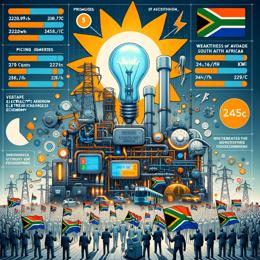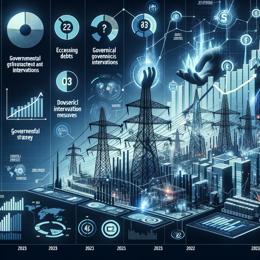Picture: for illustration purposes
South Africa Battles Rising Cases of Solar Panel Theft, Seeks Local Solutions
South Africa's effort to embrace cleaner, sustainable energy is not without challenges, as the country grapples with an emerging case of solar panel theft. This insight, according to Matthew Cruise, an energy analyst and head of business intelligence and public relations at Hohm Energy, necessitates building security measures responsive to the specific problems on the ground.
Cruise noted that the situation is somewhat reactionary, considering the recent surge in solar theft incidents. Most of the solar equipment in the country is imported, and since solar security is less prioritized in the countries of origin, South African installations often lack the necessary theft deterrent measures.
Despite the absence of national statistics on solar theft, anecdotal evidence suggests an increase in line with the surge of solar panel installation in the country. Eskom's recent report alludes to a 350% output increase of non-contracted solar panels in just over a year, from March 2022 - June 2023.
The value of solar panel imports more than doubled in the first half of 2023 compared to 2022, an appealing situation for criminals recognizing the lucrative opportunity and lax security. Reports of "bakkie brigade" solar installers reselling stolen installed equipment are not uncommon.
To counter this, several security measures are being implemented. Clamps to secure solar panels and adhesives for batteries are in place, and microdotting technology, which was predominantly used on cars, is being utilized on solar panels, thanks to a partnership between DataDot Technology and several solar manufacturers. Microdots serve as unique identifiers for stolen goods, proving their correct ownership. The hope is that the presence of these measures will deter potential thieves.










